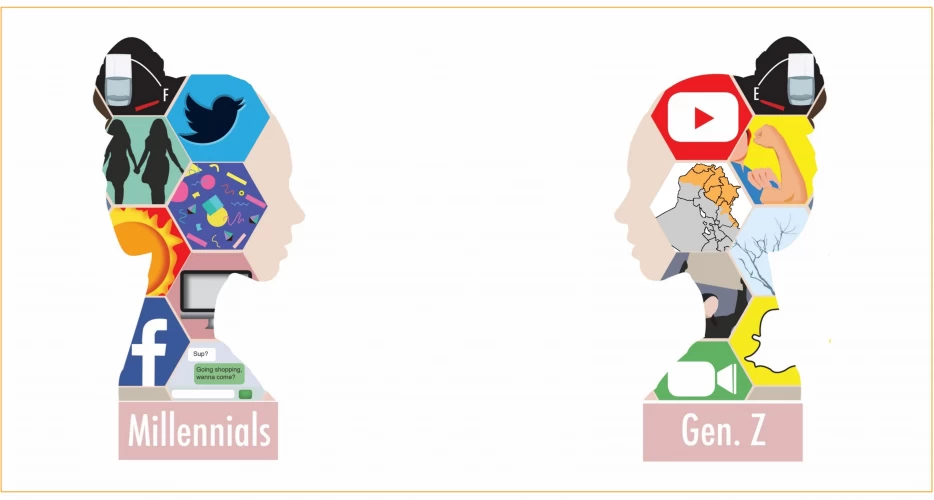

Ruwayda Mustafah
What politicians leave unsaid, their media editors say out loud. The Kurdistan Region has a population of 6.1 million, and this is expected to increase to 8.8 million by 2040. Each political entity has its news media platform. Some have grown tremendously in the past decade, amassing millions of followers, while others are still below the one-million followers.
Social media can be both very powerful and very toxic. They can be weaponized to cause disruption and instigate discord, yet they can also be a tool for political communication. Unfortunately, the Kurdistan Region is a very peculiar case in this regard – the media landscape has been largely molded by political parties, with the sole intention of praising their respective leaders, and this media landscape is unable to tolerate any form of constructive criticism. This means that your average citizen is caught between a handful of official media platforms and dozens of proxy media platforms – between chaos and intentional disinformation – and they must decipher a form of truth for themselves. One peculiar feature is that there exists no fightback to prevent society from descending into a cesspool of disinformation.
Many would agree with me that this has led to political apathy among millennials and Generation Z because their concerns simply do not resonate with those of the ruling class – their parents’ concerns probably did, but they were entirely different. They’re not fighting to survive like their parents in the 1980s; instead they want to live for today – to enjoy life in all its aspects, to have opportunities, meaningful job prospects, and dignified life.
We are seeing a new generation emerge with a complete lack of interest in participating in political activities, including elections and political events. They simply do not believe their opinions make a difference in politics. It does not help that most political meetings are dominated largely by middle-aged men who have rarely tried to build a new generation of leaders – instead they are perpetually twiddling their thumbs with dreams of further entrenching their grip on power.
We live in an age of troll politics.
People are not swayed by polished videos. They’re more likely to engage with a meme rather than with a politician right now, but this doesn’t mean there is no potential to rise above the cesspools of the social media wars. It just means we are in a state of transition – we may not see well-funded non-partisan media platforms or even substantial platforms that discuss technology, lifestyle, and culture, but eventually people will grow tired of viewing politicians as celebrities.
What we should be careful of, however, is an increase in disinformation campaigns on social media. This includes covert campaigning to change public perceptions or understandings of any topic. As the law of propaganda says, ‘repeat a lie often enough and it becomes the truth’ in politics.
We desperately need safe spaces for discussions – for young people to take the lead in engaging with topics that interest them, and to not be afraid when their opinion differs from the status quo. This is not only the case for young people within the Kurdistan Region, but also for the significant number of diaspora Kurds who can play a positive role.
For instance, the online news portal Irfaa’ Sawtak in Iraq is a very good model to replicate, as is Maghreeb Voices, a digital platform covering news and highlighting minority voices. These are both examples of meaningful platforms that could potentially emerge in the Kurdistan Region.
The question that remains is: why are we not seeing micro-digital platforms emerge, beyond those funded by political parties, to end the toxicity of digital media? There are more conversations that we could be having rather than simply consuming news about the mediocre meeting(s) of politicians. Can you imagine a population of six million held hostage by news platforms that continually bombard them with stories about political parties and their respective leaders?
We need to move away from troll politics and toxic media wars. This requires a new generation to emerge as news content creators, not just as consumers. If this happens, they will be able to help transform the political climate, even at the micro-level.